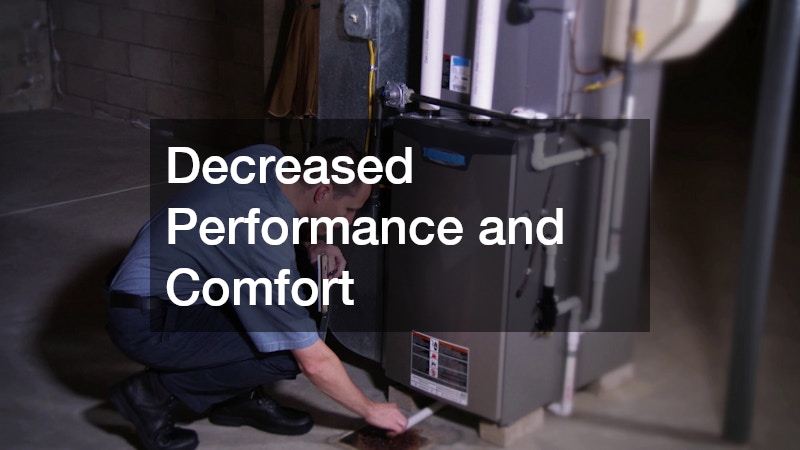In the realm of home maintenance, one essential aspect that requires attention is the decision of whether to repair or replace your heating and air conditioning system. This decision hinges on several factors, including system age, efficiency, and repair costs. Understanding when it’s time for repair versus replacement can save you money and improve your home’s comfort and energy efficiency.
Age of the System
Your HVAC system’s age is a primary factor in deciding whether to repair or replace it. Most heating and air conditioning units have a lifespan of 10 to 15 years. If your system is nearing this age range, replacement might be a more cost-effective option in the long run.
An older system is more prone to breaking down and may not offer the efficiency of newer models. Aging systems tend to lose efficiency, which can lead to higher energy bills. Consider the potential energy savings of a new model when faced with an outdated unit.
Frequency of Repairs
If you find yourself frequently calling for repairs, it might be time to consider a replacement. Constant repairs can quickly add up, making an older unit more costly to maintain. An equation to determine the validity of this decision is multiplying the repair cost by the system’s age in years; if it’s more than the cost of a new unit, replacement is a wiser choice.
Frequent breakdowns disrupt the comfort of your home and can lead to unexpected expenses. A newer HVAC system, designed with more reliable parts and components, reduces the likelihood of these hassles. The peace of mind of a dependable system can outweigh the initial investment in purchasing a replacement.
Energy Efficiency Concerns
Assessing your HVAC system’s energy efficiency is crucial in making the repair or replace decision. Systems developed over a decade ago lack the energy-efficient technologies found in today’s options. An inefficient system can cost significantly more to operate, leading to higher utility bills.
Consider the seasonal energy efficiency ratio (SEER) rating when evaluating your HVAC system. A higher SEER rating signifies a more efficient unit. Systems with a SEER rating below 13 may be candidates for replacement to align with modern energy standards and provide potential savings.
Cost of Repairs
Repair costs can vary widely depending on the issue at hand and the system’s complexity. For minor repairs, such as replacing a thermostat or cleaning coils, costs can be relatively low. However, major components such as condensers or compressors can be expensive to fix.
Repairing an older system means investing in components that may soon fail again. The costs can accumulate over time, making it less feasible to continue repairing in the long term. It’s important to weigh the cost of repairs against the potential investment in a new, more efficient system.
Replacement Expenditures
The upfront cost of a new HVAC system can be daunting; however, the potential savings over time can offset this initial investment. A new system promises energy efficiency, leading to decreased utility bills. Many newer models offer advanced features, increasing the comfort and convenience of climate control.
Consider the long-term savings potential; although the initial expenditure is high, efficient systems provide significant returns over time. Improved efficiency means less energy use—which can equate to thousands of dollars in savings over the lifespan of the system. When conducting a cost analysis, factor in these potential savings against the cost of ongoing repairs.
Warranty and Rebates
When considering a new HVAC system, the benefits of warranties and rebates should be part of your decision-making process. New units often come with manufacturer’s warranties, offering coverage for several years or longer. This coverage can provide peace of mind and protection against unexpected faults.
Rebates are often available at state and federal levels, potentially reducing the net cost of a new system. Energy-efficient models, in particular, frequently qualify for these incentives, which can make them more financially appealing. It is prudent to research available rebates when planning a replacement.
Decreased Performance and Comfort
One of the most telling signs that your HVAC system needs replacement is a noticeable decline in performance and comfort. If your system struggles to maintain temperature consistency, it may be time to upgrade. Inadequate heating or cooling is often a sign of a system that can no longer perform its necessary function.
Decreased airflow or inefficient temperature regulation can point to significant internal issues. Older systems can become overwhelmed, failing to distribute air properly throughout the home. Upgrading your system can improve comfort by ensuring even temperature distribution and robust airflow.
Increased Utility Bills
If you’ve noticed a steady, unexplained increase in your utility bills, your HVAC system may be to blame. As systems age, they lose efficiency, causing them to require more energy to achieve the same heating or cooling effect. Higher energy consumption translates directly to higher bills without any added benefit to comfort.
Deciding between repairing and replacing your heating and air conditioning system involves careful consideration of several factors. By evaluating the age, repair frequency, efficiency, and costs involved, you can make an informed decision that optimally balances comfort, efficiency, and financial considerations. Whether you choose repair or replacement, ensuring your HVAC system’s reliability and performance is crucial to maintaining a comfortable home environment.





